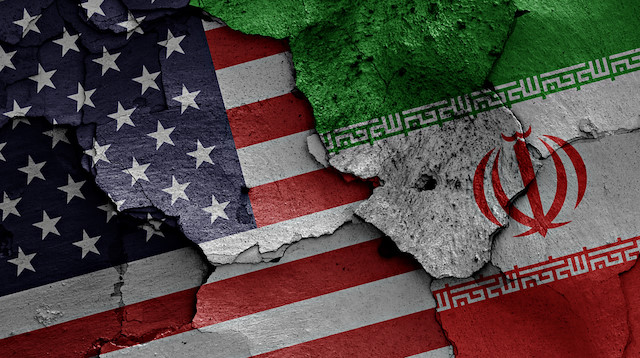
Country under pressure from Trump administration as it struggles to prioritize its national interests
Malaysia has witnessed a wave of protests against the closing of financial accounts mostly belonging to immigrants from Muslim countries, especially Iran.
The termination of the accounts by Malaysian banks was allegedly due to pressure from other countries, including the U.S., according to Singapore-based newspaper The Straits Times.
As of Wednesday afternoon, at least 4,353 of these legal foreign residents had signed a petition launched in May directed at two banks over the account terminations.
The termination of the accounts started at least six months ago, mainly by Maybank and CIMB, the two largest Malaysian banks.
The banks have not come forward to explain the reasons for shutting the accounts.
The residents affected include Algerians, Iranians, Iraqis, Nigerians, Syrians, Ukrainians and Yemenis, sources told the newspaper.
Malaysia did not specify how many accounts of foreign nationals have been closed, but local media said thousands of accounts had been affected.
A source told local media that this was done to "minimize risks to its business," especially when dealing with the U.S., following advice from the banks' anti-money laundering board.
Malaysian Prime Minister Mahathir Mohamad said the country could not trade with Iran due to Washington's unilateral sanctions against Tehran.
Speaking on the sidelines of the 35th ASEAN Summit on Sunday, he stressed that the move is against the law.
“There is no provision in the UN that when a country is dissatisfied with another country, it can apply sanctions on that country, as well as other countries that trade with the country being sanctioned,” said Mahathir.
In October, Mahathir had said Malaysia was pressured by certain quarters to close bank accounts of Iranian individuals and companies in Malaysia due to the sanction on Iran.
He said Malaysia was forced to close the accounts of Iranian companies and individuals and was threatened that its banks abroad would be closed.
"Our ties with Iran are very good. But we face some very strong pressure from certain quarters, which you may guess," said the prime minister as quoted by The Star newspaper last week.
The 94-year-old leader described this as "a kind of bullying by powerful people."
Local media reported that Mahathir was asked to comment on a report that banks in Malaysia were closing the accounts of Iranian individuals and companies in a sign that U.S. sanctions were having a far-reaching impact on citizens of the Islamic Republic.
The Middle East Institute reported that in 2013, around 100,000 Iranians lived in Malaysia and there were 15,000 Iranian students in the country.
According to the Iranian government’s figures, Malaysia was Iran’s third export destination and the second exporter of goods to Iran among the nations under review.
Iran exported 604,308 tons worth $246.93 million to Malaysia of gas condensates, non-alloy iron/steel ingots, chemicals and bitumen during the 12-month period of the Iranian year ending March 20, 2019.
Meanwhile, Malaysia exported 364,052 tons worth $395.51 million to Iran of mainly palm oil, natural rubber and machinery during the year, down by 16.34% and 19.27% in tonnage and value respectively year-on-year.
Abbas Mousavi, the spokesman for Iran's Foreign Ministry, said the country’s embassy in Malaysia is doing its best to resolve problems resulting from banking restrictions, according to Iran’s Press TV news website.
Mousavi made the remarks last week in response to reports denoting that banks in Malaysia are closing the accounts of Iranian individuals and companies in what is believed to be a measure linked to sanctions imposed by Washington against Tehran after the former left the landmark Iran nuclear deal, officially known as the Joint Comprehensive Plan of Action (JCPOA).
“Unfortunately, under the influence of the United States’ economic terrorism, some Malaysian banks have considered restrictions for opening accounts and providing services to Iranian nationals,” said Mousavi as quoted by Press TV.
Yon Machmudi, a Middle East expert from the University of Indonesia, said the U.S. policy could not be separated from President Donald Trump's efforts to block Iran in the region.
Machmudi said Trump is trying to pressure its partner countries to avoid contact with Iran.
According to Trump, Iran is the main sponsor of terrorism in the Middle East.
"Trump would give an option to its partner countries: ‘Are you with the U.S. or Iran?’" Machmudi told Anadolu Agency.
He said many countries in the world have important relations with the U.S. and this has made them choose to prioritize these relations over those with any other country.
This is what puts Mahathir in a difficult position, he said.
“On one hand, Mahathir has been in critical relations with the U.S., but on the other hand, he has to prioritize his national interests,” said Machmudi.
"Like it or not, Malaysia's relations with the U.S are stronger," he added.
Machmudi underlined that it would be very unfair if the hostility of the U.S. government towards Iran affects Iranians abroad.
"It's not fair if citizens who are legally employed in other countries have to be affected," he said.
Hello, the comments you share on our site are a valuable resource for other users. Please respect other users and different opinions. Do not use rude, offensive, derogatory, or discriminatory language.
The floor is all yours.








